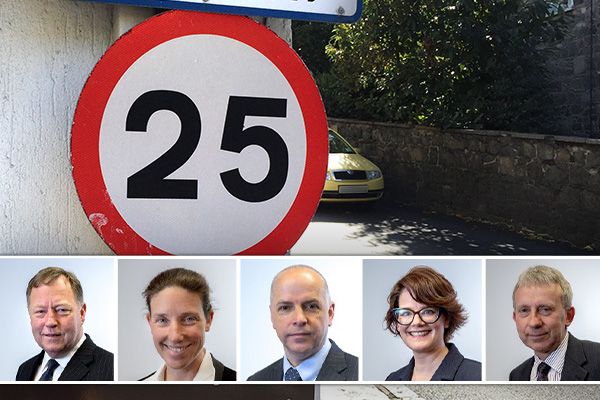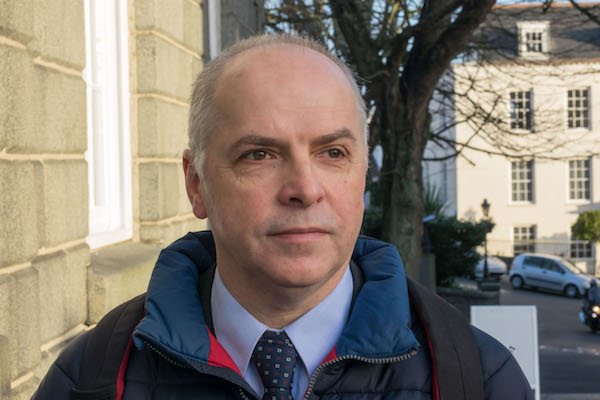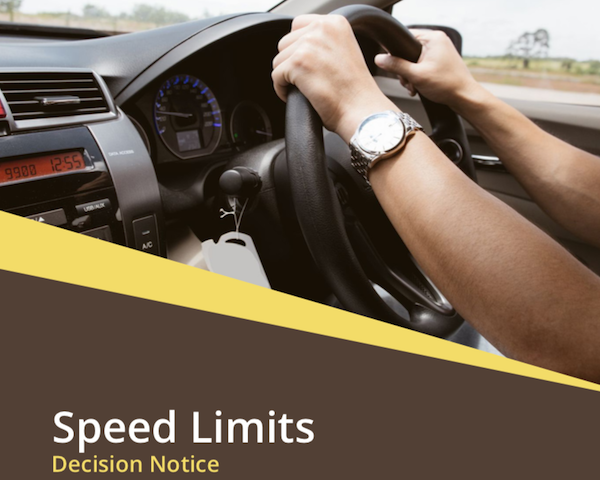

The speed limit on more than 80 roads across Guernsey will be cut to 25mph after those with the deciding power said the benefits would outweigh any of the concerns raised about the plan.
A number of people did write to the Committee for the Environment and Infrastructure to oppose the idea but E&I said it analysed all of the main topics raised and have decided to go for it anyway.
The Committee also said it "welcomed the support from the public who live in the areas that would be affected by the reduction in speed limits."

Pictured: E&I President, Deputy Barry Brehaut.
Due to the way the States of Guernsey works, this is a Committee decision and doesn't need authorising by the States as a whole, meaning it will come into force later this year once the Road Traffic (Speed Limits and Trials) Ordinance, 1987 has been amended, and new signs and poles have been put up.
Deputy Barry Brehaut, President of E&I thinks its a good idea because it will improve road safety for everyone on the island's roads.
"The States-approved Integrated Transport Strategy puts road safety as its primary objective," he said.
"Using the safe system approach, speed limits are set according to objective safety criteria. The speed people feel is appropriate to drive a vehicle is often very different to the speed people on foot, bike or mobility scooter feel is appropriate for other vehicles to pass them. There is extensive evidence that these vulnerable road users are and - as importantly - feel safer in busy community areas when traffic speeds are slower."
The roads affected by the new 25mph speed limits are within areas now called Local Centres and Main Centre Outer Areas, within the Island Development Plan.
Deputy Brehaut said those areas will all benefit from the lower maximum speed limit.
"I think it’s important to recognise that speed limits have evolved over time as societies have set different priorities for their road system. For example, in the 1960s limits were set using the 85th percentile speed, reflecting the view that drivers were making rational decisions about road speed and only the minority (the remaining 15%) would be considered as speeding.
"However, from the late 1990s onwards governments began to prioritise road users’ safety over factors that had traditionally dominated the process, such as driver attitudes and their personal preferences for high speed travel. This led to the development of the safe system model, which is now widespread and successful internationally."
The decision to cut speed limits on many roads, including notoriously busy roads such as Braye Road in the Vale are unlikely to be universally popular, something Deputy Brehaut is prepared for.
"While speed limits are not the only means to achieve slower speeds, they are nonetheless an important part of the equation, and the Committee has used internationally-recognised evidence to inform its decision-making; as detailed in our comprehensive decision notice.
"The Committee recognises that these changes will not be popular with all in our community, but it is also important to recognise that they will be welcomed by many who either feel vulnerable using our roads or live on roads that will be positively impacted by a reduction in speed."

Pictured: The decision making process has been published in full for those who want to read it.
The ‘safe system approach’ which E&I references, is endorsed by the OECD and the World Health Organisation. It uses "a holistic view of the road transport system and the interactions between road users, roads and roadsides, vehicles and travel speeds. It is a robustly evidence-based approach that uses data, research and evaluation to substantiate its recommendations."
Pictured top: The E&I Committee members, l-r, are Deputies Shane Langlois, Lindsay de Sausmarez, Barry Brehaut, Sarah Hansmann Rouxel and Mark Dorey.
Comments
Comments on this story express the views of the commentator only, not Bailiwick Publishing. We are unable to guarantee the accuracy of any of those comments.